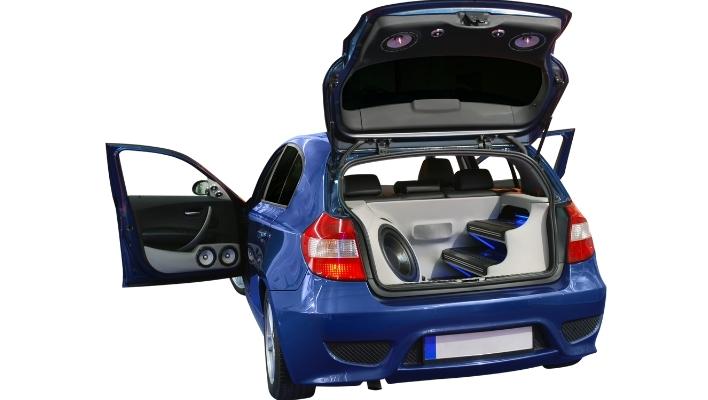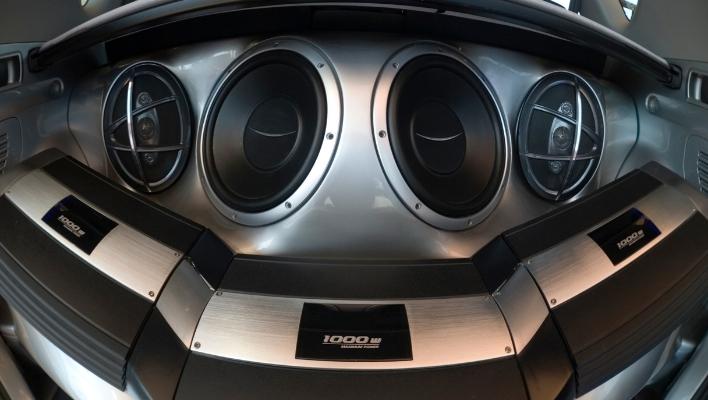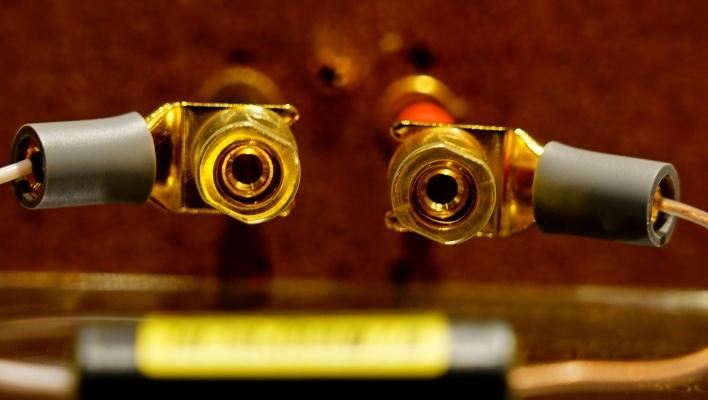So, you may have noticed that when you turn on your car and the radio starts playing, the sound seems really quiet. This may be because of rear speakers not working in car properly. If this is true and you don’t have time or cash to go to a garage, then we can help.
Rear speakers not working in cars are a common problem car owners face. When your rear speakers stop working, you may not be able to hear sound coming from the rear of your vehicle. This could happen if the speaker is damaged and needs to be repaired or if it’s just loose inside the car.
Problematic rear speakers deny you the surround sound experience of music. They are essential because they give us the feel of the music. You can fix rear speakers in your vehicle easily by checking for loose connections and cords and ensuring the speakers are correctly positioned.
If you have rear car speakers not working, it can mean various things. You may need to replace your speakers or do some troubleshooting on them.
This article will help walk you through how to fix loose speaker wires in cars and rear speakers not working in cars. You can do this at home and save yourself some good bucks.

Reasons Why Rear Speakers Not Working in Car
The sound quality of the rear speakers differs from that of the front speakers. As a result, if you are playing music in your car, you may feel dissatisfied with its sound quality. If you have no sound coming out of your car speakers, there are several things that can be causing your issue.
- The first reason is that some wires might not be connected properly.
- Another reason your rear speakers do not work correctly could be loose connections between them and other components such as the power supply or amplifier unit(s).
- The volume for the rear speakers may be too low to hear. Check the settings and ensure you have set the volume to the correct level. If it isn’t, increase it until you can hear clearly.
- The wires from the amplifier might be damaged or frayed, or there might not be enough power going to them. This is usually a common problem with older vehicles but can happen even if you have a brand-new car with everything working correctly.
- The fuse may be blown within your vehicle’s wiring system; check all fuses within this area first. If they are all good, try replacing one at a time until you have identified which one is faulty; if none has blown yet, then it’s likely none of them is defective.
- Most commonly, the problem can be related to a loose connection between the speaker and the rear deck.
Fixing Rear Speakers Not Working in Car
Listening to music in your car but not hearing your rear speakers is one of the most common car problems. This happens when the speaker wires are disconnected or broken or when there is a defect in the speaker itself. If you want to fix this problem, you can use a soldering iron and solder to reconnect the speaker wire.
The rear speakers in most cars are typically located in the trunk or under the seat. If you have a vehicle with broken rear speakers that are not working, you may need to remove the back panel and check for any broken wires.
- The first thing to do is check if your rear speakers are connected properly. The connection can be tested by connecting the speaker leads to their respective terminals on the back of your radio. Make sure that both speakers are connected to positive (+) and negative (-) terminals on the radio.
- If you have an aftermarket stereo speaker system that has separate outputs for each speaker channel, then it would be necessary to disconnect one of them before proceeding further. If you’re only using one speaker channel, then there is no need to disconnect anything besides your hands-free phone cable (which should be plugged into both channels).

If your back speakers not working in car, even after doing the above, you can continue troubleshooting by following these steps.
Steps:
- Open the trunk of your car and locate a small Phillips screwdriver, a voltmeter, a couple of sponges, and a can of compressed air. The can of compressed air is for blowing out debris that might be jammed in the system or make it difficult for you to hear or see things.
- Turn on the ignition and check for power at both rear speaker connections. If there is no power, check each wire as you walk around them with your voltmeter until you find one with voltage at all three terminals (it will be orange).
You should also check this connection with your multimeter’s test leads before moving on to any other connections to know what each one looks like when there’s power flowing through it. - Remove any screws holding your trunk lid and remove them if necessary so that you can access the rear panel of your car’s interior. This is where its rear speakers are located behind some plastic tabs sticking up from inside its openings.
- Check the fuse for the rear speaker. The fuse may have popped out of its socket. If this is the case, then replace the fuse with one that is of similar size. Make sure you do not use a smaller-sized fuse as it might cause some damage to your vehicle’s electrical system.
- Check if there is any problem with the wiring inside your car. Take out the back seat and check if any loose wires could be causing this problem. Also, check whether any part of your vehicle’s wiring has come off and needs to be reattached.
- Check the wiring harness and ensure that all pins connect with corresponding holes in the connector. Ensure that the wires are not broken or damaged by touching another metal part of your vehicle (for example, a door frame).
Fixing Loose Speaker Wire in Car
Loose speaker wires aren’t only a nuisance, but more than that, they can be dangerous for your car’s electrical system. As you might have guessed, loose wires can cause unnecessary wear and tear on the vehicle’s electrical system. Even worse, if your car has the right equipment installed, it could catch fire.
The good news is that there are many ways to fix loose speaker wires in your car.
- The first thing to do is determine whether or not the problem is caused by a broken wire or a faulty connection. If you think the wire is broken, cut it off and replace it with another piece of wire that matches the length of the original one.
- Once you have correctly cut out your original wire, attach a new one to connect to another part of your vehicle’s electrical system.
- If you suspect your connection is faulty, you will need to remove it from where it was attached and inspect its internal components for damage or wear. In some cases, this can be as simple as reattaching it in a different location with proper placement on either side of an existing component, such as an amplifier or amplifier control unit (ACU).
Steps for Fixing Loose Speaker Wire in Car
It is important to fix a loose speaker wire in your car. A loose speaker cable can damage the speakers and be dangerous for you and your passengers. It can be the main reason back speakers not working in car.
Here are some things you can do to fix a loose speaker wire:
- Turn off the ignition. If the car has an automatic transmission, turn off the engine and remove the key from the ignition. If there is no automatic transmission, remove all of your keys from the vehicle and put them in a safe place.
- Remove the screws that hold on the plastic cover from around each speaker. This will expose wires connected to each speaker that go into a connector on top of each speaker box. These connectors are used for signal transmission between two speakers or multiple speakers and amplifiers.
- Additionally, remove the cover from the blue plastic connector on the back of your head unit.
- Pull off any old electrical tape from the wires.
- Connect two new wires to each end of the connector.
- Reinstall your head unit’s cover and plug it back in.

Fixing Loose Speaker Wires Caused by Loose Connection in the Speaker.
- Loosen the cable clamping mechanism on the back of your radio with a screwdriver. You can find this at the top of your car stereo cabinet.
- Unscrew the small screws that secure the speaker wire to each terminal and remove them altogether.
- Hold the speaker wire firmly in place while you pull it up with your other hand.
- If there is still resistance when pulling up on the wire, try pushing down on it while pulling up instead of vice versa to loosen it up a bit more. The resistance should go away once you’ve done this once or twice.
- Identify the loose wire inside the speaker.
- Fix the wire if you can. You can solder the ends. If you can’t fix it, you can take the speaker to a technician and have them fix it.
When to Replace Rear Car Speakers
When you are looking to replace your rear car speakers, you need to know what to look for. It’s a good idea to replace your rear car speakers when any of the following conditions occur:
- The first thing you will notice is that the sound quality of your new speakers will be much better than the old ones. This is because they will be able to reproduce higher frequencies, and the sound will be more precise.
- Another thing you need to know about replacing rear car speakers is that some vehicles have systems that allow you to add additional speakers. If you have this type of system, you need to use it because it can help enhance the sound quality of your music or audio system.
Below is an additional list of situations where it would make sense to replace your rear car speaker:
- Your old speaker has been damaged or worn out.
- You want something better than what you have now.
- The speakers are damaged or have become loose.
- The speakers are unable to produce the same sound quality as before.
- The speakers crackle or have a low-frequency hum.
Final Word
Our guide has shown you how to fix rear speakers not working in car at home without spending extra money on your repairs.
Now that you know the issue plaguing your rear speakers, you should be able to fix it yourself and save a ton of money by avoiding going to a car audio shop or dealership. Chances are, you probably have all the tools around your house to fix it.
There are many factors that cause car speakers to stop working. If you do not want to buy new speakers, first check if there is a problem with the connection and repair it. Also, check if the fuse of the entire sound system is blown.
Hopefully, our tips will help you find the source of the problem and get everything up and running again as quickly as possible. All the best as you fix your rear speakers.
